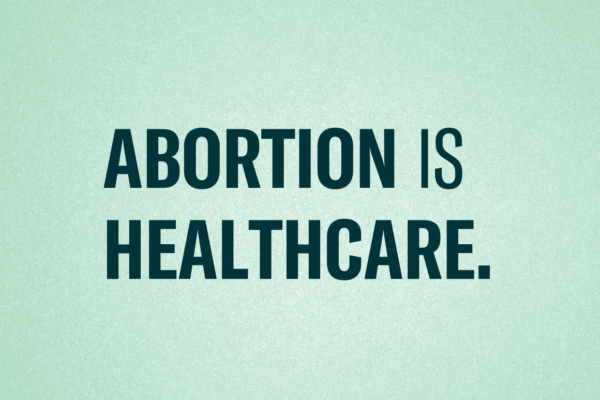This blog post is ACLU Delaware's official testimony on House Bill 320. A PDF copy is available at the bottom of this page.
March 16, 2022
VIA EMAIL
Dear House Health & Human Development Committee Members,
We thank Representative Heffernan, the prime sponsor, for bringing House Bill 320 forward, as expanding who may provide abortion care is critical in this time. The ACLU of Delaware supports efforts to allow Advanced Practice Clinicians to provide medication abortion services as outlined in HB 320.
However, HB 320 could be improved upon. In its current version, HB 320 only includes medication abortion, and leaves out procedural abortions. This is a major concern for several medical and logistical reasons. This summer, we expect the U.S. Supreme Court to potentially strike at the heart of Roe v. Wade, and either overturn the landmark decision or severely weaken it. Such a decision could trigger an avalanche of states enacting outright bans or harsh restrictions on abortion. Fortunately, Delaware is one of 13 states that has protected the right to abortion, which makes us extremely important both regionally and nationally as people in states with bans may be forced with seek abortion care in Delaware
or elsewhere.
In Texas, where abortion has essentially been banned by the state’s HB 8, we can already see the impact on its neighbors in Oklahoma, New Mexico, Arkansas, and Louisiana, which are seeing spikes in patients seeking abortion care. It is very possible that Delaware will see such a spike in a post-Roe United States. To be able to handle this possible influx, it is critical that Delaware expand its laws to enable qualified APCs to provide abortion care, both medication and procedural.
Access to procedural abortions is especially important in the potential post-Roe world. In many cases, procedural abortions may be a better option for patients who travel because they generally require fewer office visits and they are easier to confirm completion. In addition, medication abortion is typically used in the earliest stages of pregnancy, but people who must travel to obtain an abortion are often times slightly later in their first trimester, making procedural abortion possibly a better option. Most importantly, people seeking an abortion should have the full range of options at their disposal, and having qualified APCs able to provide the full range of abortion care is critical to that.
20 states have already allowed APCs to provide abortion care, and three-quarters of them allow APCs to provide both medication and procedural abortions. Besides Pennsylvania, Delaware is the only state in the Mid-Atlantic or Northeast that has not yet expanded to allow APCs to provide abortion care. Both procedural and medication abotions are well within the standard of care APCs provide, as they regularly prescribe medications and both labor and delivery are far more complex and have higher rates of complications than procedural abortion.
The ACLU requests that the committee members consider the following amendment or substitution of HB 320:
- Delete the added text that HB 320 currently provides (lines 10-11).
- Add the following on line 4, “A physician, a physician assistant, or advance practice nurse may terminate…”
- Add the following on line 6, “A physician, a physician assistant, or advance practice nurse may not terminate…”
The sad fact is that we are approaching a time in our nation’s history where the right to seek an abortion will be nearly out of reach for many people in various states. We call upon Delaware legislators to meet this moment, and expand access to abortion to ensure our state is prepared for a post-Roe world.
Thank you for your time and consideration.
Javonne Rich
Policy & Advocacy Director
ACLU of Delaware
[email protected]




